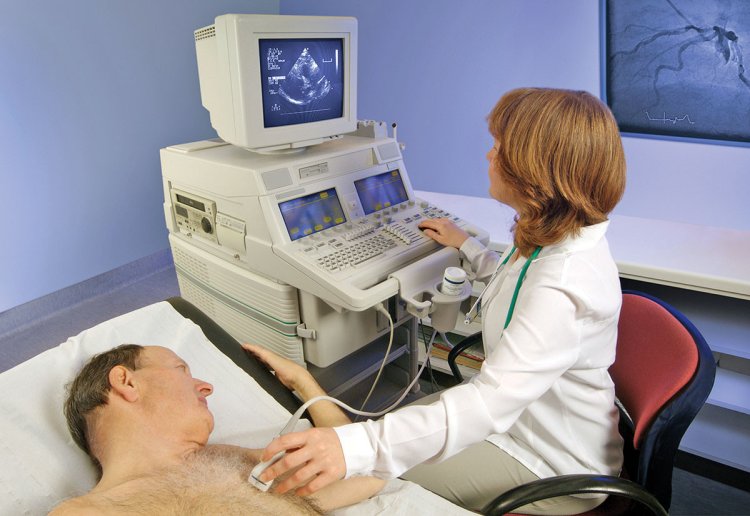Heart Screening in NYC: What to Expect During Your First Visit

When it comes to your heart, early detection can make all the difference. Heart screening in NYC offers a proactive approach to identifying risk factors before symptoms appear. Whether you have a family history of cardiovascular disease or simply want peace of mind, scheduling your first heart screening is a smart and potentially life-saving decision.
If you're preparing for your first heart screening, it's normal to feel a bit unsure about what to expect. This guide will walk you through everything you need to know about the process, what tests might be involved, and how to get the most out of your visit.
Why Heart Screening Matters
Cardiovascular disease remains the leading cause of death in the United States. According to the CDC, one person dies every 33 seconds from heart disease. Despite its seriousness, many heart conditions develop silently over time, making heart screening in NYC an essential tool for early detection and prevention.
Benefits of heart screening include:
-
Identifying risk factors such as high blood pressure, cholesterol, or abnormal heart rhythms
-
Detecting early signs of heart disease
-
Creating a personalized prevention or treatment plan
-
Reducing the risk of heart attack or stroke
If you're over 40, have a sedentary lifestyle, or have a family history of heart disease, regular screenings could be crucial.
Who Should Get Heart Screening in NYC?
Not everyone needs the same level of screening. However, certain groups are at higher risk and should prioritize regular heart checkups:
-
Adults over age 40
-
Individuals with a family history of heart disease
-
Smokers or former smokers
-
People with high blood pressure, diabetes, or high cholesterol
-
Individuals with obesity or a sedentary lifestyle
-
Those experiencing symptoms like chest pain, fatigue, or shortness of breath
Your primary care provider or cardiologist will assess your personal and family health history to determine if heart screening in NYC is right for you.
How to Prepare for Your First Heart Screening
Preparing for your first visit can help ensure accurate results and a productive appointment. Here are a few tips:
-
Know your family history: Be ready to discuss any relatives who have had heart attacks, strokes, or other cardiovascular conditions.
-
Bring your medication list: Include all prescriptions, over-the-counter medications, and supplements.
-
Fast if necessary: Some blood tests may require fasting for 8–12 hours beforehand. Your provider will inform you if this applies.
-
Wear comfortable clothing: You may need to undergo physical tests or imaging that require loose-fitting clothes or a hospital gown.
-
Write down questions: Don’t hesitate to ask about your risk factors, test results, or next steps.
What Happens During a Heart Screening?
A typical heart screening in NYC involves several non-invasive tests and assessments designed to evaluate your cardiovascular health. Here’s what you can expect:
1. Initial Consultation and Medical History Review
Your visit will begin with a discussion about your personal and family medical history, lifestyle habits, and any symptoms you may be experiencing. This helps your provider tailor the screening to your individual needs.
2. Physical Examination
Your healthcare provider will check your:
-
Blood pressure
-
Heart rate
-
Body Mass Index (BMI)
-
Breathing sounds
-
Pulse in various parts of your body
These simple checks can reveal early signs of cardiovascular issues.
3. Blood Tests
Blood work plays a crucial role in evaluating your heart health. Common tests include:
-
Lipid panel: Measures cholesterol and triglycerides
-
Blood glucose test: Checks for diabetes or prediabetes
-
C-reactive protein (CRP): Identifies inflammation linked to heart disease
4. Electrocardiogram (ECG or EKG)
An EKG records the electrical activity of your heart. It can detect irregular heart rhythms, past heart attacks, or other abnormalities.
5. Echocardiogram
This ultrasound test creates images of your heart in motion. It allows your doctor to see how well your heart pumps blood and whether there are any structural issues.
6. Stress Test (if recommended)
In some cases, you may be asked to complete a treadmill or stationary bike test while your heart function is monitored. This helps assess how your heart responds to physical exertion.
7. Imaging Tests (if needed)
Advanced imaging like CT coronary angiography or calcium score testing might be used if you're at moderate to high risk or experiencing symptoms.
After the Screening: What’s Next?
Once your screening is complete, your doctor will review the results with you. Depending on the findings, they may:
-
Recommend lifestyle changes (diet, exercise, smoking cessation)
-
Prescribe medications to manage blood pressure, cholesterol, or diabetes
-
Refer you to a cardiologist for further evaluation
-
Schedule follow-up tests or ongoing monitoring
Heart screening in NYC is not a one-time event; it’s part of a broader strategy for lifelong heart health.
Choosing the Right Heart Screening Center in NYC
New York City is home to many world-class healthcare providers and cardiology centers. When choosing where to go for your heart screening, consider:
-
Board-certified cardiologists and experienced medical staff
-
Availability of advanced diagnostic tools and technologies
-
Convenient location and appointment flexibility
-
Positive patient reviews and reputation
-
Insurance acceptance and transparent pricing
Whether you opt for a large hospital system or a specialized heart health clinic, choosing a reputable provider ensures you receive high-quality care.
Final Thoughts
Taking the first step toward a healthier heart can feel overwhelming, but it doesn’t have to be. Heart screening in NYC is a simple, effective way to detect problems early and stay in control of your cardiovascular health. By understanding what to expect and how to prepare, you can walk into your appointment with confidence and walk out with a clearer picture of your heart health.
What's Your Reaction?


















.jpg)
